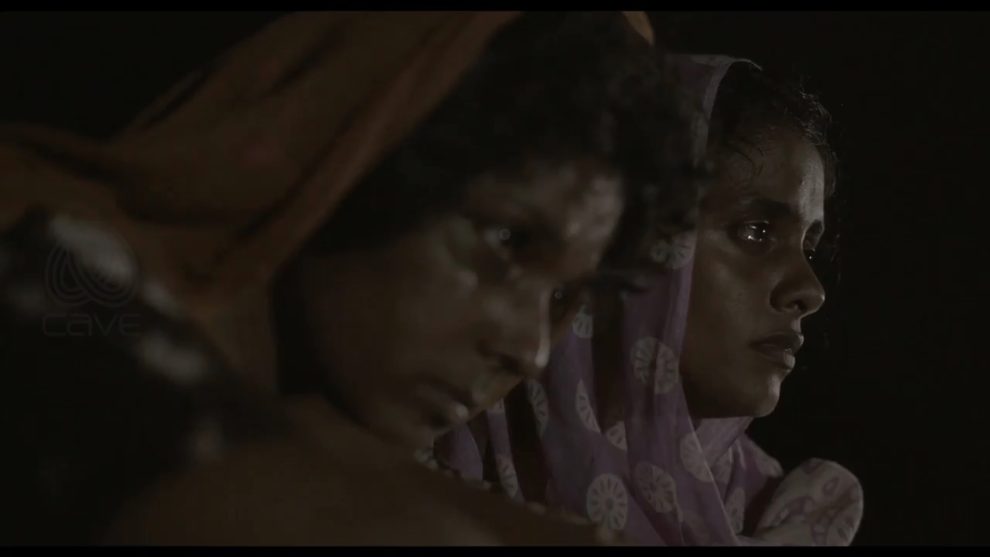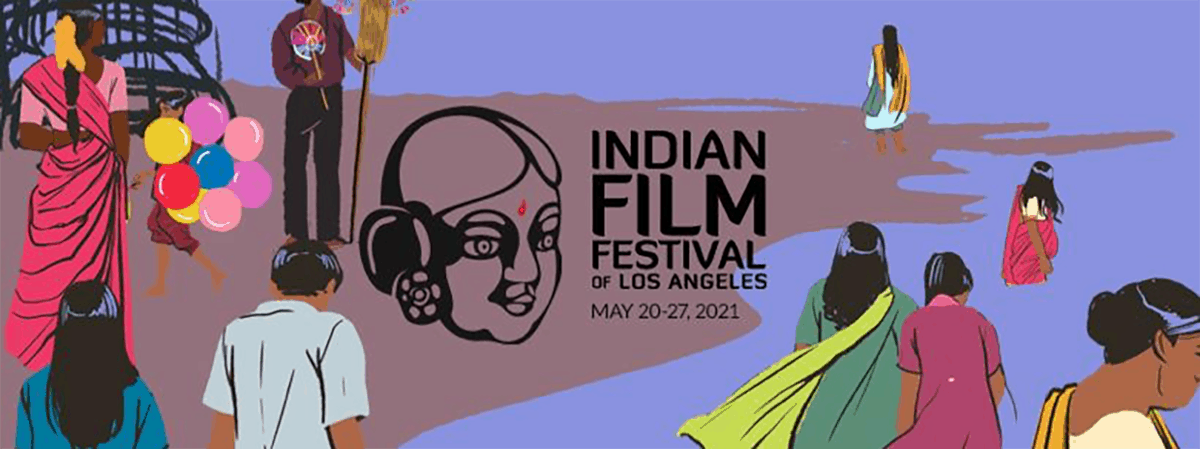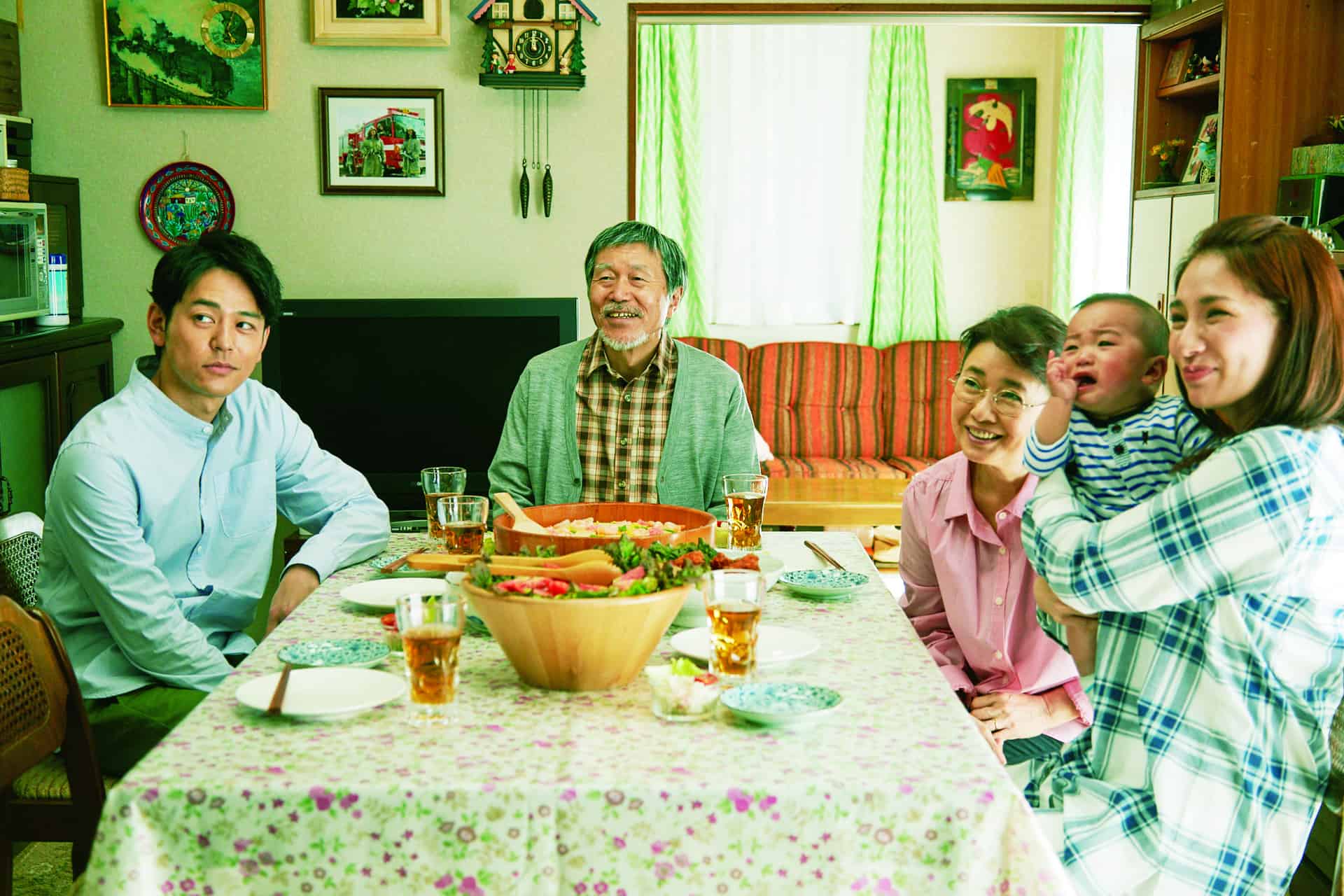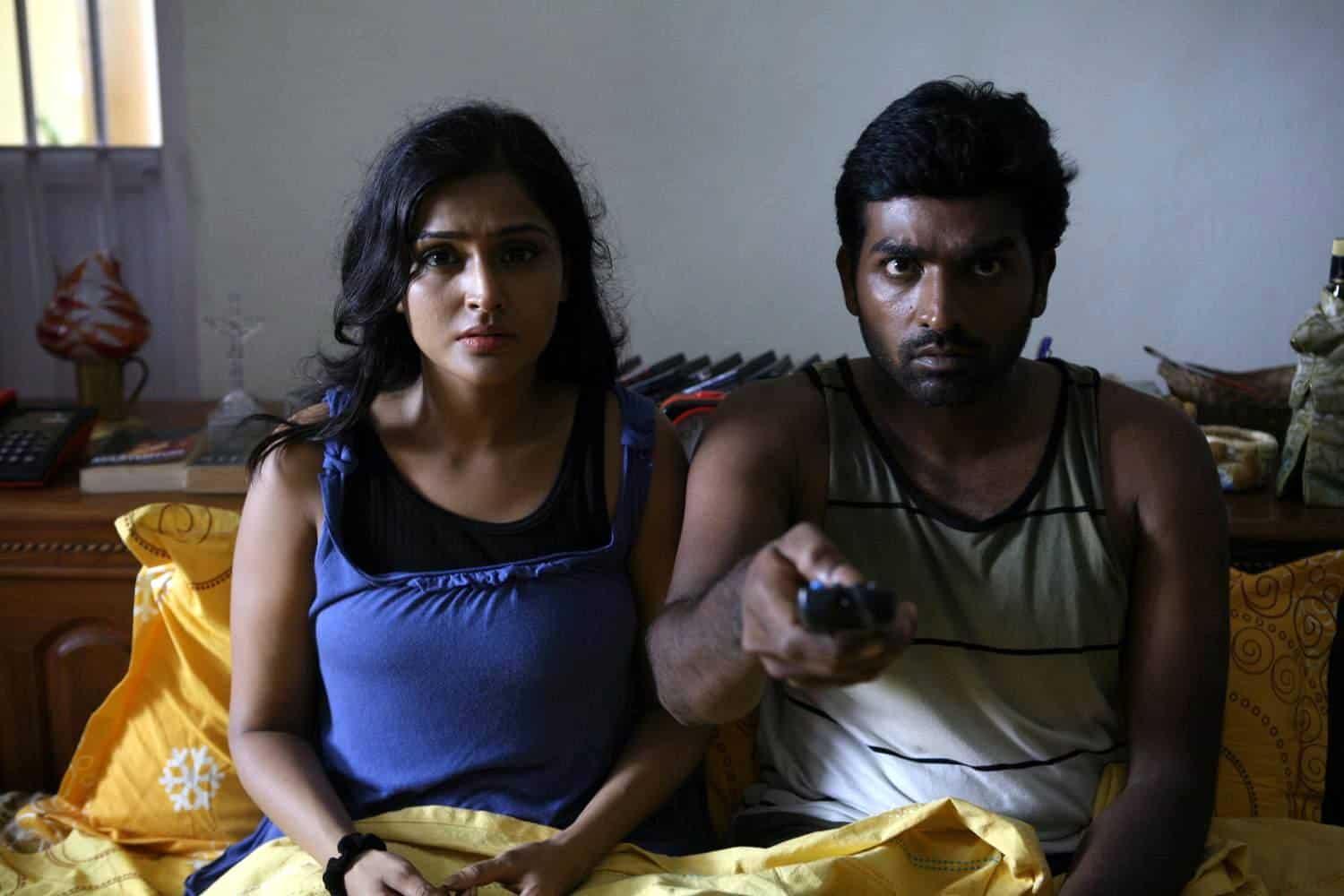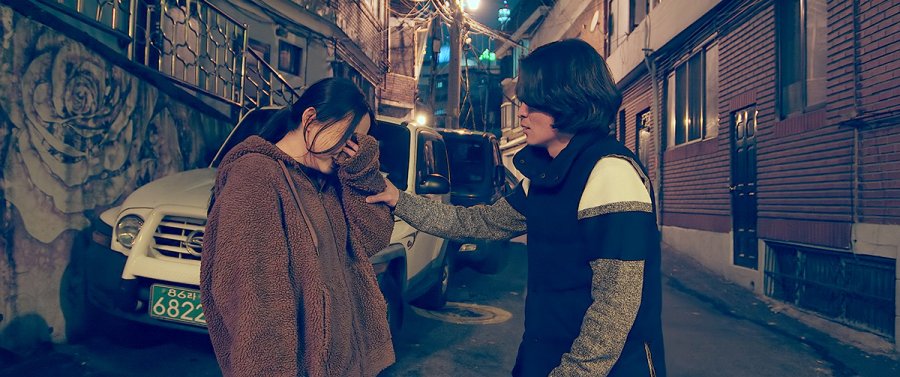The frequently impossible conditions women have to face in India has been a recurring motif in local cinema, resulting in a number of excellent titles, with “Sexy Durga”, “Ajji” and “Shadow of Water” being some of the first that come to mind. Sajin Baabu follows on the same footsteps, by showing how this oppression comes from very different sources, and does not only apply to women.
Biriyaani is screening at Indian Film Festival of Los Angeles
Khadeeja, a very beautiful woman from a conservative Muslim family is married into a family where her mother-in-law is the absolute boss, and her husband a mouthpiece who just seems to follow her every whim. Khadeeja, however, manages quite well despite the circumstances, and the family lives a relatively good life, with her only issue being that her husband cannot satisfy her in bed. However, when she is informed that her brother has been accused of being an ISIS terrorist, she experiences a multi-leveled rejection from her rural Kerala community. Her husband divorces her and prevents her from seeing her son. The authorities treat her as being some kind of associate of her brother, essentially accusing her and her mentally handicapped mother for their relative's deeds. The press seems to follow on the accusations without any particular research regarding the truth, while even the news on TV have a number of “experts” talking about things that seem to put the blame on women, at least when they are not just sprouting complete nonsense about ISIS and the sociopolitical situation of the country.
Soon. Khadeeja finds herself stripped of any kind of assets, with her and her mother taking refuge in a mosque in Tamil Nadu, where a kind-hearted muezzin, Mohammad Bijili, becomes her only confidante, and soon, something much more. Eventually, Khadeeja is forced to move to a run-down house in a small settlement he provided, but in order to make things meet, she becomes a prostitute. Even that does not work, however, and when the police meddle, everything takes a turn towards the worse, with her choice to hold a traditional feast serving the local delicacy, biriyaani, to make amends with the community that ostracized her, having rather dire consequences for everyone involved.
Sajin Baabu creates a multi-leveled, rather intriguing narrative, where Khadeeja's story provides a captivating base, but also moves into various other directions, mostly revolving around the harshness of Indian people, which here, is presented extending in various directions. Starting with the circumcision Khadeeja's young son is forced to undertake with no anesthesia, continuing with the prejudice revolving around Muslim families, whom, most people consider terrorists from the get-go, including both the police and the intellectuals, and concluding with the way her mother receives no kind of help from anyone despite her health issues, all portray a rather harsh setting, particularly targeting people not for what they choose to do, but for how they were born.
At the same time, Khadeeja's own story highlights how hopeless women can be in such a setting, with the way the various men in her life treat her, highlighting the fact in the most eloquent fashion. That amidst all the things she has to face, Khadeeja goes one a trip that aims at love, sexual satisfaction, making a living, and eventually, revenge, emerges as one of the most intriguing aspect of the narrative, giving her an almost mythological hypostases, although in somewhat hyperbolic fashion, due to the number of different “trips”.
The way the story shows all men in her life mistreating her in some way, with the exception of Mohammad, is a comment showing how good Muslims can be in comparison. The finale of the movie however, actually tears down this idea almost completely, as Khadeeja finds herself with a man who judges her instead of trying to understand her.
Sajin Baabu seems to also want to shock through his images, in order to make his comments more intense. The various sex scenes, the violence towards Khadeeja, the butchering of animals, the circumcision that is presented with utmost and rather appalling realism, all move towards this direction. DP Karthik Muthukumar captures these scenes through a visual approach quite similar to that of documentaries, but one cannot but think that these moments essentially are disconnected from the rest of the narrative, while the fact that the Biriyaani aftermath is not depicted at all but just implied, intensifies this issue even more. The same applies with one of the last scenes, where Khadeeja is portrayed completely naked from the waist up for the first time in the movie, in a sequence that just seems to aim at sensualism and has very little contextual value. In that regard, Appu N. Bhattathiri's editing would be better if those scenes were omitted or if Baabu decided to present the Biriyaani one in similar fashion. On the other hand, the way he implements a relatively fast pace in the movie works quite well for the narrative, allowing the many episodes and the resulting comments to be presented in adequate fashion.
Kani Kisruti gives an impressive performance as Khadeeja, in a rather difficult role that has her exhibiting a number of sentiments and psychological statuses, including frustration, resolve, despair, fear and sadness, and her delivering with utmost artistry. Particularly the way she shows a crooked, half-smile during moments that seem completely dramatic is a true treat to watch, while also providing a much needed relief from all the awful things happening in the story. Surjith as Mohammad Bijili gives the second most memorable performance, with the way he keeps calm at almost all times, but still manages to show he has feelings for Khadeeja being the apogee of his performance.
“Biriyaani” emerges as a very interesting movie, with Baabu's comments being eloquently portrayed through artful cinematic ways. The film could have been truly great, however, if he knew exactly how much he wanted to shock and which comments he could do without, and moved the whole narrative in that direction.


